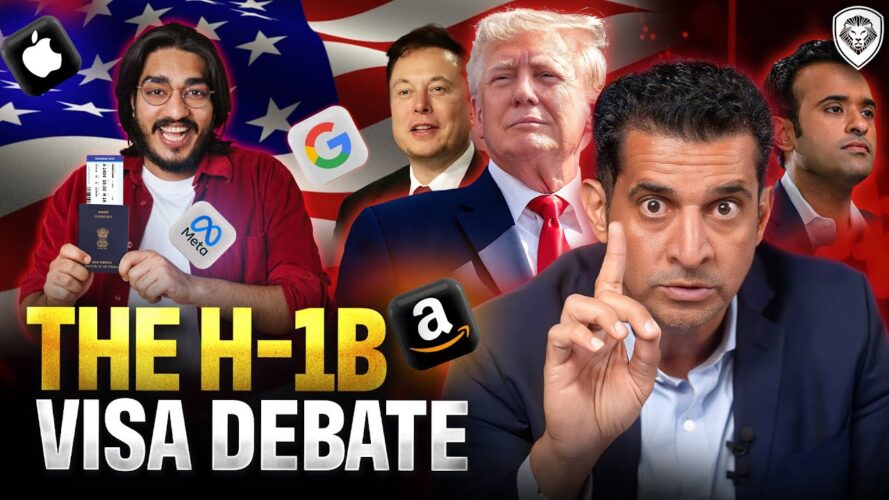The H1B visa, a key topic in immigration and employment policy, has sparked heated debates across the political spectrum, threatening to turn the MAGA base against the tech world. In this video, Patrick Bet-David dives into this hot-button issue to explore the economic impact, alleged abuses, and potential reforms of the H1B visa system, drawing on perspectives from across the political and ideological landscape.
The Economic Contributions of Immigrants
Immigrants have significantly influenced the U.S. economy, especially in entrepreneurship and innovation. Data reveals that:
- 55% of billion-dollar startups in the U.S. were founded by immigrants.
- 44.8% of Fortune 500 companies were established by immigrants or their children.
These contributions highlight the role of immigrants in creating jobs and fostering innovation, challenging arguments that H1B visas displace American workers.
The H1B Visa: How It Works
The H1B visa is a non-immigrant program designed to fill gaps in specialized fields like STEM (science, technology, engineering, and mathematics). Key features include:
- Eligibility: Requires advanced knowledge and a bachelor’s degree or higher.
- Duration: Initially issued for three years, extendable to six.
- Caps and Quotas: An annual cap of 85,000 visas, with 20,000 reserved for U.S. master’s degree holders.
- Application Process: Employers sponsor workers and comply with wage requirements.
- Portability and Dual Intent: Visa holders can switch employers and pursue permanent residency.
Proponents vs. Critics
Arguments For H1B Visas:
- Economic Innovation: H1B workers fill critical skill shortages, particularly in STEM.
- Global Competitiveness: They contribute to keeping the U.S. competitive in technology and innovation.
- Long-term Impact: Many H1B holders transition to permanent residents, further integrating into the economy.
Arguments Against H1B Visas:
- Wage Suppression: Critics argue that H1B workers are often paid less than their American counterparts.
- Worker Exploitation: Employers sometimes abuse the system, leveraging workers’ dependency on visa sponsorship.
- Displacement of U.S. Workers: Allegations persist that H1B visas reduce opportunities for domestic workers.
Systemic Challenges and Reforms
The current system faces criticism for inefficiencies and potential exploitation:
- Lottery System: Critics suggest a merit-based approach to replace the random selection process.
- Corporate Abuse: Firms like Infosys and TCS have faced lawsuits for filing bulk applications and underpaying workers.
- Education and Competitiveness: The U.S. lags behind countries like India and China in producing STEM graduates, raising questions about domestic education priorities.
Diverse Perspectives
Prominent voices highlight the divide on H1B visas:
- Elon Musk emphasizes the importance of attracting global talent to maintain U.S. dominance in technology.
- Steve Bannon and others argue for stricter limits, labeling the program as a tool for wage suppression.
- Donald Trump has expressed contradictory views, praising the program while advocating reforms to prioritize American workers.
The Broader Cultural Debate
The debate extends beyond economics to questions of American identity and values. Some view the reliance on immigrant labor as undermining domestic culture and community, while others argue for embracing global talent to strengthen national competitiveness.
Conclusion
The H1B visa debate encapsulates a broader discussion about immigration, economic policy, and national identity. Balancing the need for global talent with protecting domestic workers remains a complex challenge. Ultimately, the conversation underscores the importance of data-driven reforms to ensure fairness, competitiveness, and innovation in the U.S. labor market.
This issue invites thoughtful, respectful dialogue, emphasizing shared goals of economic strength and national pride.


















Add comment